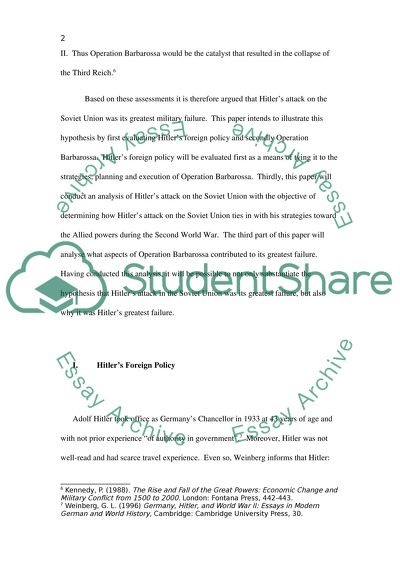Cite this document
(“Was Hitler's decision to attack the Soviet Union his greatest military Essay”, n.d.)
Retrieved from https://studentshare.org/environmental-studies/1412725-was-hitler-s-decision-to-attack-the-soviet-union
Retrieved from https://studentshare.org/environmental-studies/1412725-was-hitler-s-decision-to-attack-the-soviet-union
(Was Hitler'S Decision to Attack the Soviet Union His Greatest Military Essay)
https://studentshare.org/environmental-studies/1412725-was-hitler-s-decision-to-attack-the-soviet-union.
https://studentshare.org/environmental-studies/1412725-was-hitler-s-decision-to-attack-the-soviet-union.
“Was Hitler'S Decision to Attack the Soviet Union His Greatest Military Essay”, n.d. https://studentshare.org/environmental-studies/1412725-was-hitler-s-decision-to-attack-the-soviet-union.


